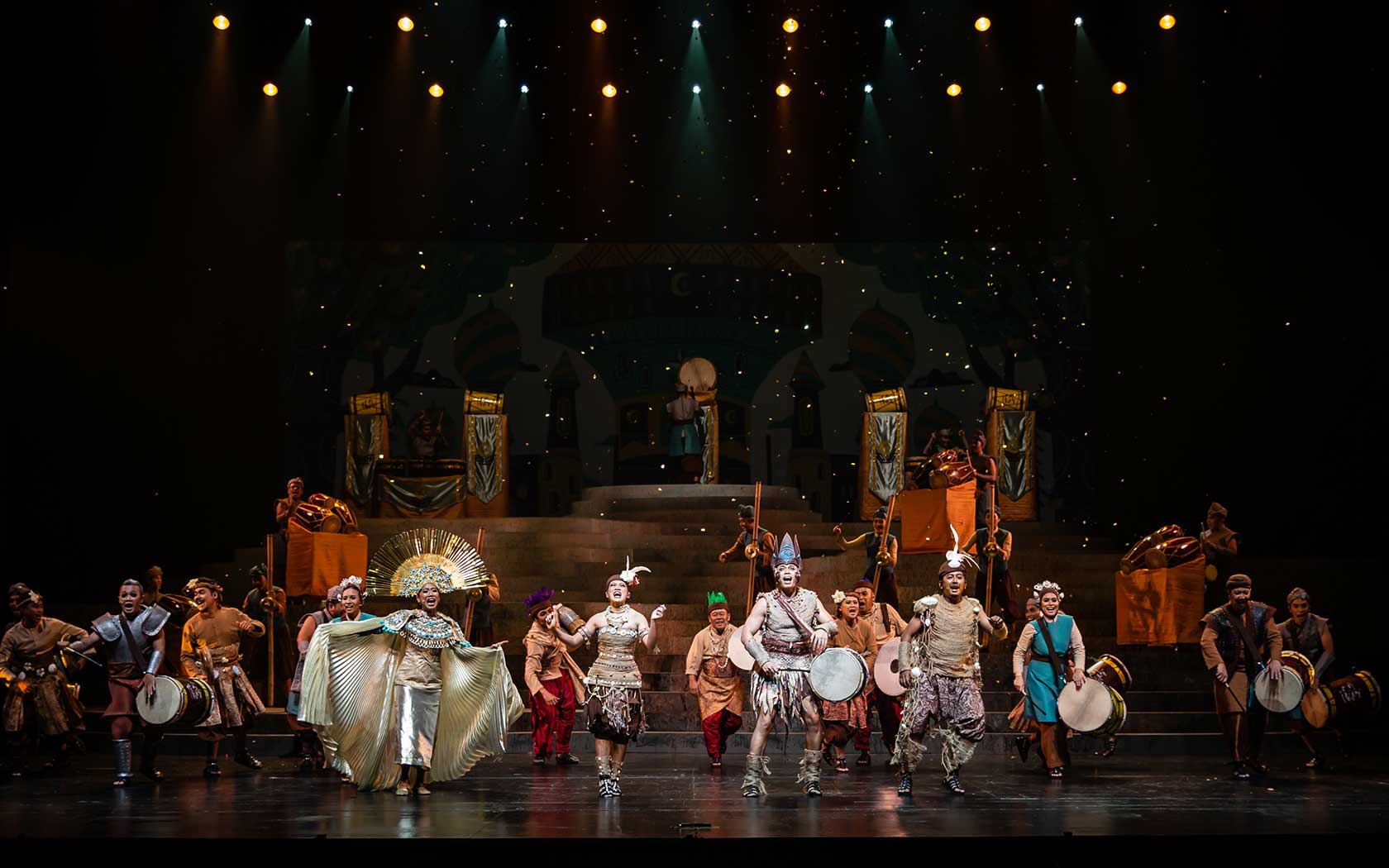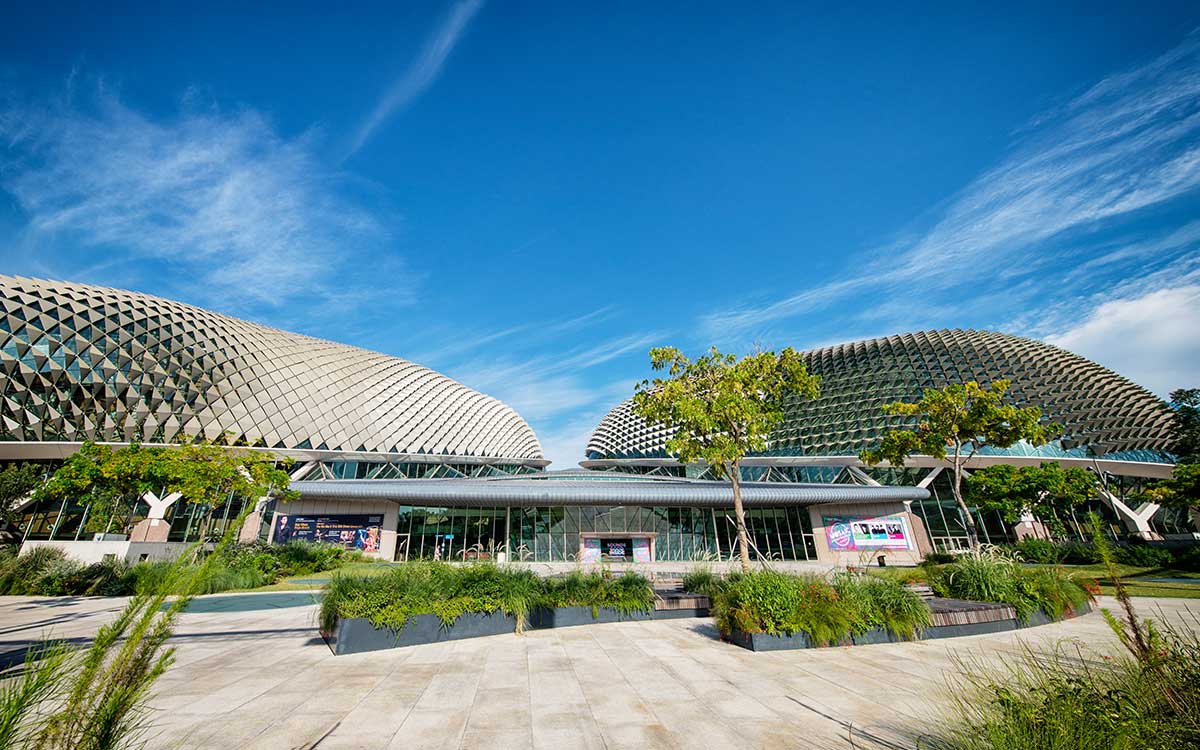We use cookies to improve your experience on our site. To find out more, read our data protection and cookie policy. By using our site, you agree to our use of cookies. Close to continue browsing.
Esplanade Presents
This Song Father Used to Sing (Three Days in May)
6 Sep 2024, Fri, 8pm
7 Sep 2024, Sat, 8pm
(Intermission: None)
Esplanade Theatre Studio
Sold Out



Sold Out
“…more than the themes of politics, gender, religion, and so on it depicts, this play is sharply questioning the very nature of a theatre, the place where it is taking place, and, by extension, artistic expression and art itself.” – Yoru no Fune, Kyoto Experiment Performing Arts Criticism Project 2021 Spring: Selected Review.
17 May 2015: A pair of Thai-Chinese siblings reunite to perform a traditional Chinese ceremony in remembrance of their late father.
19 May 2018: They reunite again to perform a traditional Chinese ceremony in remembrance of their late father.
22 May, some years later: They reunite once again to perform a traditional Chinese ceremony in remembrance of their late father.
This Song Father Used to Sing (Three Days in May) zeroes in on a small kitchen space in Bangkok. A brother and sister live through three days there in May, each time in a different calendar year, to commemorate their deceased father in a traditional Chinese ceremony. They cook, eat, chat and joke about nothing in particular. Their retiring nature contrasts with the captivating and often absurd conversations they engage in. Past, present and future blend subtly, connected to the political context of the Thai metropolis. The play shows life as it is, without drawing a veil over its alienating character. The characters’ statements do not serve any logic and neither do they lead to a clear end.
This is an unpolitical story with its own politics. Written and directed by award-winning playwright Wichaya Artamat, who has been recognised as a leading figure in contemporary Thai theatre, This Song Father Used to Sing (Three Days in May) premiered in 2015 at Crescent Moon Space, Bangkok, Thailand, to great reception by audiences and critics alike. It was awarded Best Play by the International Association of Theatre Critics, Thailand Centre (IATC) in 2016, and was nominated for Best Performance by a Male Artist, Best Performance by a Female Artist, and Best Original Script awards in the same year. It toured major European festivals such as Festival d’Automne, Theater Spektakel, Kunstenfestivaldesarts and Wiener Festwochen, and now makes its way to Esplanade as Wichaya’s debut work in Singapore.
This is a story that allows audiences to see how ordinary people can survive in a world in which they will never win, dead or alive. A world that will repeat itself May after May, day after day. A world that plays its people into the politics of the invariably unpolitical story of life.
There will be a post-show dialogue after each performance.
Wichaya Artamat
Wichaya Artamat is a co-founding member of For What Theatre. He has been long captivated by performances, even when he was still studying film. He started working in theatre as a project coordinator for Bangkok Theatre Festival 2008. He joined the New Theatre Society in 2009, during which he grew to become a director recognised for various experimental forms and unconventional theatrical approaches.
Wichaya’s work was awarded Best Play for two years in a row (2014-15) by the International Theatre Critics Association, Thailand Centre (IATC). His international exposure started when he worked as an assistant director to Toshiki Okada’s Pratthana which toured in Bangkok, Paris, and Tokyo. Since the European premiere of his most prominent work This Song Father Used to Sing (Three Days in May) at Kunstenfestivaldesarts 2019, Wichaya has been extensively touring and creating in Europe, Asia and beyond.
Hailed as “one of the most promising contemporary theatre creators of Southeast Asia”, Wichaya is especially interested in exploring how society remembers and unremembers its history through certain calendar days. He co-founded For What Theatre in 2015 and is also a member of Sudvisai Club and Collective Thai Scripts.
6 Sep 2024, Fri
8pm
7 Sep 2024, Sat
8pm
| Standard | Students, NSFs, Seniors & PWDs |
|
| Price | $38 | $30 |
-
Standard Ticket
-
Concession Ticket
Esplanade&Me Specials
Early Bird (3 – 26 May 2024, limited tickets)
Black: 20% savings
White: 15% savings
Discover: 15% savings (Min. of 2 tickets)
From 27 May 2024, 10am
Black: 15% savings
White: 10% savings
Discover: 10% savings (Min. of 2 tickets, limited tickets)
Applicable to Standard tickets only. Terms and Conditions apply.
The Studios 2024 Season Pass
(3 May 2024 – 14 Jul 2024, limited tickets)
Enjoy 20% savings when you purchase min. 1 ticket to each of the 4 applicable productions, valid for up to 4 tickets per production:
- Air
- Rhapsody in Yellow
- One Day We’ll Understand 有那么一天
- This Song Father Used to Sing (Three Days in May)
Applicable to Standard tickets only. Terms and Conditions apply.
Tote Board Arts Grant
All Upper Secondary Schools, Junior Colleges/ Centralised Institute & ITEs may use the Tote Board Arts Grant to subsidise up to 50% of the programme cost.
For more details, please contact Esplanade Box Office at 6828 8389 or email boxoffice@esplanade.com.
ESPLANADE OFFSTAGE
Read, watch, listen
Become a member

Great arts experiences begin with Esplanade&Me. Join this membership to enjoy ticket specials on shows at Esplanade, early bird specials, promotions at Esplanade Mall, unlimited access to Offstage and more.

Never miss a show again. Get on our mailing list.
- This Song Father Used to Sing (Three Days in May)











